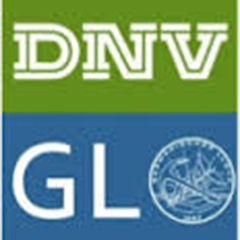- LiDAR Assisted Control technology was verified to decrease a wind turbine’s load level and stabilize its operation.
- To bridge normative gaps and build trust and confidence in the technology’s feasibility, DNV GL applied the Component Certification in conjunction with its Qualification Procedure for New Technology.
Beijing, China (5 November 2019) – One of China’s leading wind turbine manufacturers Goldwind, is the world’s first OEM to receive DNV GL’s Component Certification for its LiDAR Assisted Control system. The certificate is issued according to DNV GL’s own Type and Component Certification Service Specification in conjunction with the Recommended Practice for new Technology Qualification*.
LiDAR, which stands for “Light Detection And Ranging”, is a technique where a laser source is used to sense the incoming wind field in front of a wind turbine rotor. Its application to wind turbine control systems facilitates the reduction of loads on certain components such as the tower and blades, improves the operational stability and even increases a wind turbine’s annual energy production.
DNV GL has analysed and assessed the potential of this technology for more than 10 years. Building an internal network of deep technical expertise, leading international technical forums such as IEA task nr. 32 by the international Energy Association (IEA) and running both computational as well as experimental research projects using company facilities. However, despite the technology having been extensively tested by many industry players over the last 10 years, its industrial application to wind turbine control systems has a limited field history and is not well covered by existing standards and technical regulations.
To bridge these normative gaps and provide a systematic risk-based assessment, documenting performance, safety and technology feasibility to facilitate the Component Certification, DNV GL combined the component certification with its Technology Qualification principles.
“Our broad experience and insight into the technology’s failure modes and mechanisms make DNV GL an experienced partner for qualifying LiDAR based systems and improving its safety, reliability and performance,” said Kim Mørk, Executive Vice President for Renewables Certification at DNV GL.
To achieve the final certification milestone, Goldwind carried out an extensive and technically demanding set of validation activities on full-scale turbine prototypes.
The scope of these activities in many cases exceeded the typical scope adopted for certification projects and focused on demonstrating the technology’s performance under the applicable operational limits as well as appropriate mitigation of its risks.
“Goldwind started experimenting with this technology in 2012, testing various LiDAR prototypes with turbine control algorithms as well as wind free flow and wake detection,“ explained Pan Weiping, Deputy General Manager R&D, Goldwind. “The experiences built up allowed Goldwind to take a leading role in the Chinese representation in IEA task nr. 32. In 2013, Goldwind started developing the fundamental control algorithm, based on first generation LiDAR sensors and launched field experimentations with different site conditions and wind turbine platform from 2014 to 2016. Meanwhile, Goldwind improved and customized the second-generation LiDAR sensor together with LiDAR manufacturers and started a pilot certification project in 2016, when the technical path to certification was laid down. Later, the results of the validation campaign were assessed by DNV GL experts and confirmed the expected performance in terms of load reduction, up to 20% on selected components.”
* Component Certification according to DNV GL-SE-0441, Qualification Procedure for New Technology according to DNV-RP-A203
About DNV GL
DNV GL is a global quality assurance and risk management company. Driven by our purpose of safeguarding life, property and the environment, we enable our customers to advance the safety and sustainability of their business. We provide classification, technical assurance, software and independent expert advisory services to the maritime, oil & gas, power and renewables industries. We also provide certification, supply chain and data management services to customers across a wide range of industries. Operating in more than 100 countries, our experts are dedicated to helping customers make the world safer, smarter and greener.
DNV GL delivers world-renowned testing, certification and advisory services to the energy value chain including renewables and energy management. Our expertise spans onshore and offshore wind power, solar, conventional generation, transmission and distribution, smart grids, and sustainable energy use, as well as energy markets and regulations. Our experts support customers around the globe in delivering a safe, reliable, efficient, and sustainable energy supply.
Learn more at www.dnvgl.com/power-renewables
Goldwind receives world’s first certification for LiDAR Assisted Control technology by DNV GL


























